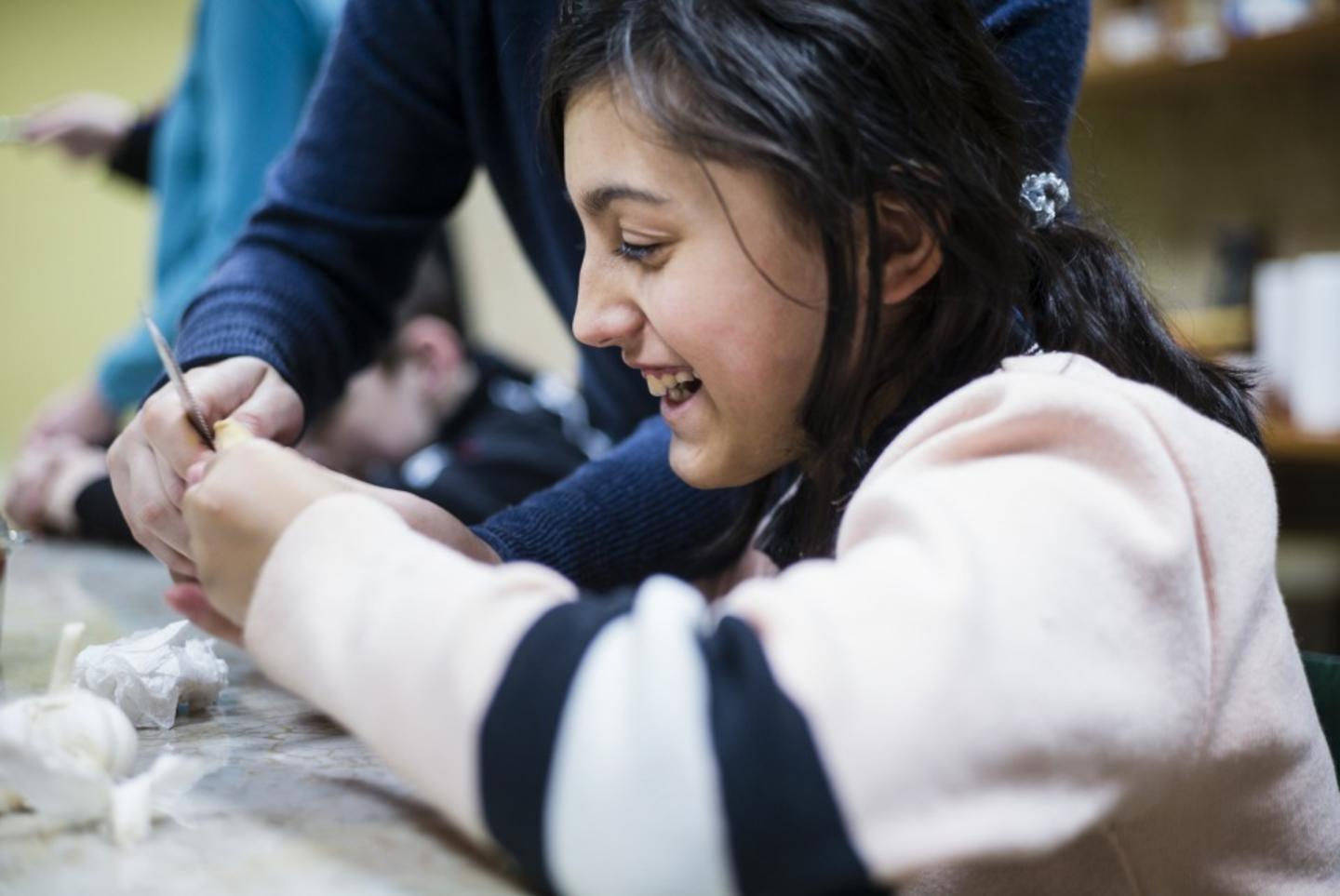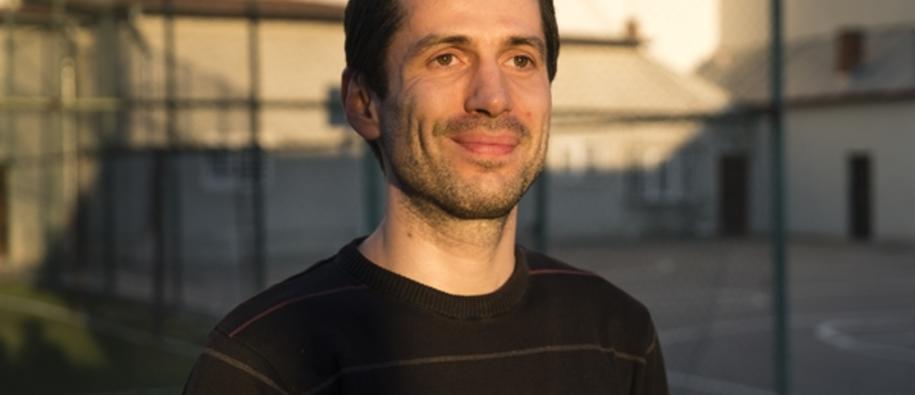Florentin Rădulescu from the PONTES Association is one of persons behind the project ‘Passport of success for children and youth with visual impairments’ in Cluj-Napoca, Romania. Blind people and individuals with limited sight in Cluj County are at a significant risk of social exclusion. Today, less than 1% of them participate in the formal economy. Through the project, Florentin and his colleagues aim to break social isolation at an early stage by connecting visually impaired children with their sighted peers while giving them the opportunity to learn valuable skills.
Working together
The project includes after school workshops where children work together with sighted volunteers. The workshops focus on different themes. Some target vocational counselling, while others focus on teaching the children skills that will help them in their daily life. Among those is a cooking class where they prepare their own dinner. Learning basic everyday skills such as how to make food can do a lot for the children’s confidence and independence.
The project reaches 100 visually impaired children and around 200 sighted individuals. Many of the sighted persons volunteer their free time to join the after-school workshops. Among those is Veronica, a 26 years old who participates in a creative workshop where the children use play dough to learn about shapes. She initially found out about the project through friends who also participate as volunteers:
“I decided to volunteer because I enjoy doing creative activities and I think it’s very fulfilling to be able to help others.”
Connecting people
Florentin notes that in addition to learning new things, simply participating in the project can be a great experience for the children. As such it is an important step in breaking social isolation:
“Instead of spending their weekends staying home and getting bored, they get out and meet other people – they’re very happy to get in contact with their peers.”
He furthermore emphasises that the project is not only beneficial for the children – it can open doors for their families as well:
“Parents often don’t have the resources or the knowledge of how to support the child,” explains Florentin adding that in these cases, increased interaction with others can improve the situation:
“Connecting them with the community not only helps the children themselves – it also gives the parents more knowledge of what can be done.”
Dinner in the dark
In connection with the workshops, the project has also included the awareness campaign ‘Listen to the UnSeen City’. The campaign aims to help the visually impaired in their dealings with public authorities and to invite the public in Cluj-Napoca to learn about the challenges faced by the visually impaired in their daily lives.
The campaign also aims to make people aware that the visually impaired and the sighted have a lot of interests in common and can enjoy many activities together. As an example of this, the project team organised a ‘dinner in the dark’ on Valentine’s Day. In the ‘dinner in the dark’ concept, people are invited to dine in complete darkness, having to rely completely on their other senses. The concept has spread across Europe in the past years but is still fairly unknown in Romania. Yet, it proved to be a great success:
“This was one of the most important events we’ve organised through the project. Around 60 guests were served dinner by 15 blind individuals. Both sides highly enjoyed the evening – the guests got an understanding of what it is like not to see and the servers felt both useful and proud,” explains Florentin, adding that a second dinner organised in June 2016 was met with the same enthusiasm.
Building support
The project also includes a support network of 22 carefully selected specialists from public and private bodies interested in the issues encountered by persons with visual impairments. After meeting with visual impaired children and adults and discussing the challenges they face in their daily lives, the specialists have formed small teams to work on certain objectives in accordance with their expertise and resources.
The objectives cover several areas, including increased accessibility in Cluj-Napoca – such as roads, sidewalks, zebra crossings and buildings – better inclusion of visually impaired youth in the labour market, and supporting family activities that strengthen trust building between parents and their children.
The project is one of over 100 projects supported by Iceland, Liechtenstein and Norway through the Romanian ‘Children and Youth at Risk and Local and Regional Initiatives to Reduce National Inequalities and to Promote Social Inclusion’ programme.

